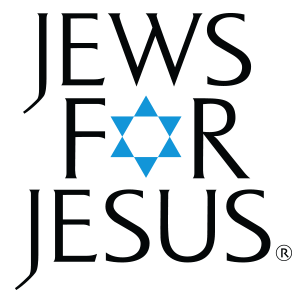I’m Palestinian and Jewish: Here’s Why I Don’t Believe in Choosing Sides
by Haneen Razzouk | April 29 2020
It was my first ever time in Israel, and I was terrified. As I made my way through the security check at Ben Gurion Airport in Tel Aviv, my fear turned to full-on panic when an Israeli security officer took a close look at my passport and read my incredibly Arab-sounding name aloud:
Haneen Razzouk.
When I looked up to face the officer, I was immediately given a glare of scrutiny. I was interrogated and my belongings rifled through. I tearfully pleaded with the TSA agent as she threw away my prescription medicine.
It was hard for me not to take it personally. I was being scrutinized, yet ironically, not seen.
She was just doing her job, which, considering the situation in Israel, demanded an understandably high level of precaution. But even knowing this, it was still hard for me not to take it personally. I was being scrutinized, yet ironically, not seen.
After all, my name doesn’t reflect my full story – I was born to a Palestinian father and a Jewish mother in Sacramento, California. Where I was raised, most people applauded a family like mine for its uniqueness and for the hope for diversity and acceptance that we embodied.
Still, my dual identity has elicited plenty of polarizing reactions from people from all different backgrounds. Perhaps most painful were those of my own relatives. My father’s family made their distaste for my Jewish heritage evident, and the tension was palpable to me, even as a child. When I was around them, I felt the need to deemphasize my Jewish identity.
I had a foot in each family, but wasn’t fully comfortable in either one. My own discomfort was always evident to me when I would go to fill out a form, application, or census. It would tell me to simply, “Select your ethnicity,” and I’d hover over the boxes for way too long, unsure of which one to check.
These experiences have fueled my own internal conflict of identity.
These experiences have fueled my own internal conflict of identity. I don’t always know what to acknowledge first – my Palestinian identity or my Jewish identity. Sometimes, the answer changes depending on who’s asking. The truth is, I cannot choose just one, and God does not ask me to.
My experiences are only a microcosm of an age-old conflict which, like many, is filtered through the chaos of history, religion, and bloodline. It’s in the ancient accounts of the Scriptures that this conflict was born. When Hagar and her son, Ishamel, were forced to flee from her resentful mistress, Sarai (Genesis 16), it began a long and complicated relationship between the Arab and Jewish people. But through the same story, I also see one constant: the faithfulness of God to care for and pursue all people.
In Genesis 12:2, God makes the first of many promises to Abraham, the father of the Jewish people, saying, “I will make of you a great nation, and I will bless you and make your name great, so that you will be a blessing.” It’s only a few chapters later, in the same book, that God tells Hagar, the mother of Ishmael, the ancestor of the Arab nations, “I will surely multiply your offspring so that they cannot be numbered for multitude” (Genesis 16:10). My own existence is direct evidence of those promises fulfilled thousands of years later.
Through His promises to Abraham and Hagar, I see that God is faithful to all who sincerely call on Him in faith. This faithfulness is personal, not just national. Though God was faithful to Abraham, He also met Hagar in her moment of despair, being the “God of seeing” (Genesis 16:13). He saw them both in their unique positions and promised a legacy and hope to each one.
I’ve found that the conflict is so intense and real that it can lead otherwise-kind people to develop an aversion or abhorrence for the other side.
I’ve found that the conflict is so intense and real that it can lead otherwise-kind people to develop an aversion or abhorrence for the “other side.” This, however, is a complete deviation from how God actually views those He has created. God is in the business of reconciliation (2 Corinthians 5:18-20). He told Abraham that the promises He made to him and his descendants would bless all the nations (Genesis 12:3). God’s plan of redemption was always bigger than one people group. The fulfillment of this is most chiefly evident to me when He sent the Messiah to the Jewish people to bring hope, healing, and reconciliation to any person (to one another and to God) or to any nation who places their faith in him.
Everyone has the ability to work towards peace and reconciliation because we have the power to examine our own internal conflicts. And everyone has access to a personal relationship with the God of the universe, the true source of internal peace.
I might not be able to solve the Middle Eastern conflict, but I can still pursue wholeness for my own heart and identity. I can stand by God’s promises to both my Arab and Jewish ancestors, finding joy in knowing that through the beauty of my lineage, I get to exemplify the love He displayed to all people, and to see His active redemption for all nations. I can choose both sides.

